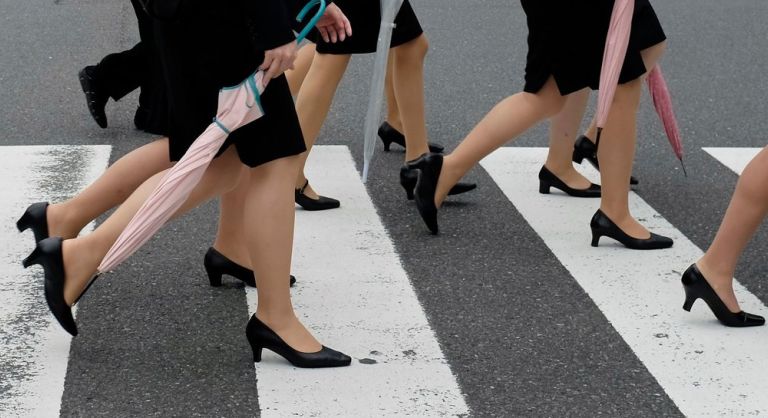Thousands of women in Japan have spoken out against the unfriendly workplace policy that makes it mandatory for them to wear high heels to the office.
According to a report in BBC, at the forefront of the campaign is Japanese writer and actress Yumi Ishikawa, who started a petition calling for an end to dress codes after she was made to wear high heels while working at a funeral parlour.
Ishikawa points out that the emphasis on high heels is ingrained in the culture and has become a social norm in Japan. Women wearing flat shoes like men are considered to possess bad manners and they are looked down upon, Ishikawa reveals and hopes that her campaign will help to change this social norm.
Around 19,000 people have already signed Ishikawa’s petition and her tweets on the issue have gone viral with more than 30,000 shares.
The campaign, referred to as #KuToo in Japan, plays on the Japanese words ‘kutsu’ (shoes) and ‘kutsuu’ (pain) and references the #MeToo movement against sexual harassment in the workplace. The campaigners have pointed out that women job applicants need to be amenable to wearing high heels to the office for being eligible for the jobs. Refusal to conform to this norm results in disciplinary action.
This is not the only dress code issue that working women in Japan have raised their voices against in recent times. According to another BBC report, some companies in Japan had banned women employees from wearing glasses at work, drawing considerable flak on social and mainstream media.
Also, Japan is not the only country that has expressed discomfort with dress codes for women in the workplace.
In 2015, a London receptionist was sent home from work and denied salary for refusing to wear high heels.
Nicola Thorp, hired as a temporary staff member at finance company PwC, was asked to wear high heels to the office by her employer. She, however, refused and launched a campaign to change dress codes in the UK.
Media coverage of this issue has borne fruit with outsourcing firm Portico announcing that female colleagues could “wear plain flat shoes” with immediate effect.
In 2017, a Canadian province scrapped a rule that made it mandatory for women to wear high heels to the office. The government of British Columbia acknowledged the health risks associated with high heels that include physical injury from slipping or falling and possible damage to the feet, legs, and back.
According to a report in DailyMail, high heels can result in a host of health issues from lower back pain, pinched nerves and bunions to restricting blood circulation, clawed toes, muscle shortening of calf and hamstring muscles, and sprained or broken ankles.










